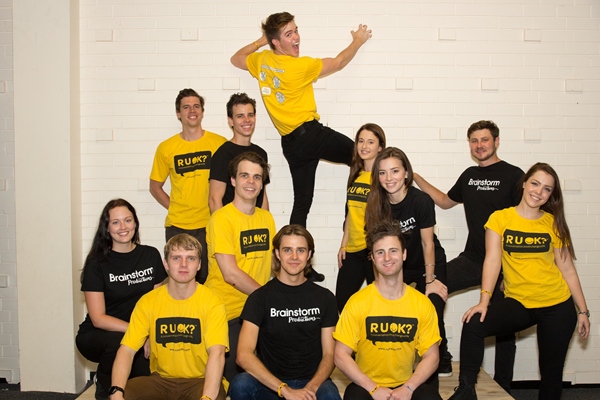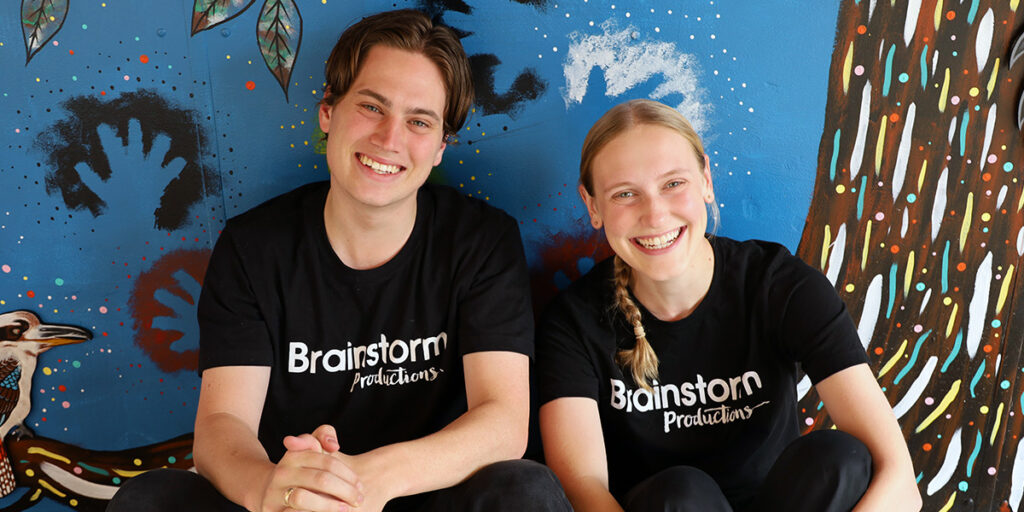New Survey Reveals Aussies Spend more time with Screens than Quality Time with Family and Friends.
A NEW national survey from R U OK? has revealed Australians spend an average of 46 hours of their weekly downtime looking at their TVs and digital devices, compared to an average of six hours engaging with family and friends.
The suicide prevention charity has also revealed that around half of Australians spend two hours or less of their weekly downtime connecting with the people who matter to them.
R U OK? Campaign Director Rebecca Lewis said the research has highlighted that we’re more intimately acquainted with our devices than the highs and lows of our families’ and friends’ lives.
“It’s a big wakeup call that we’re spending almost eight times the amount of hours looking at our screens compared to the time we spend engaging with the people who matter to us,” Rebecca said. “We all need to shift that balance and invest some of our screen time into our relationships and the people around us.”
The survey also revealed that while Australians want to spend more quality time connecting with family and friends, distance (38%); being too tired or lacking energy (28%); being busy with other activities (20%); catching up on housework (19%); or long work hours (18%) are the main obstacles preventing that outcome.
R U OK? Board Director and Executive Director of the Black Dog Institute, Professor Helen Christensen, said finding time in our busy schedules for relationships is critical.
“Connecting with people we care about is so important for maintaining good mental health. We know that strong and caring connections with friends and family provide a vital safety net to help people cope with the challenging moments in life,” Helen said. “Conversely, withdrawing from social engagement is often a sign of poor mental health and this is the time when loved ones need to stay connected, no matter how difficult it may be.”
Make Time to Reconnect
In the lead up to its eighth R U OK?Day on Thursday 8 September, R U OK? is urging all Australians to spend more time catching up with friends, chatting on the phone with family, or visiting elderly relatives.
Rebecca said setting aside quality time for those we care about makes it easier to start a conversation if you sense they’re not doing so well.
“It takes trust and understanding for someone to open up about what they’re going through,” Rebecca said. “Being there for one another, in both the good and bad times, is the key for building that trust.”
R U OK? Ambassador and former rugby league player Brett Finch said he’ll be taking time to reconnect with his mates on R U OK?Day and throughout the year.
“It can be easy to lose contact with people who matter to us because life’s hectic. Even if you can’t be there in person, pick up the phone and give someone you care about a call. It’s worth the effort. Having been through some personal battles in recent years, I know how important it is that we’ve got good mates and family to talk to,” Brett said.
“I’m so grateful that my family and mates reached out to me when I was at my lowest point. I know the difference a sense of connection and support can make. That’s why I want others to do the same for the people in their world,” he said.
Summary of Research Findings
Respondents reported that in a typical week they would spend the below number of hours connecting with friends, family and people who matter most to them:
- 2 hours or less – 49%
- Between 2 and 5 hours – 23%
- Between 5 and 10 hours – 17%
- Between 10 and 20 hours – 8%
- More than 20 hours – 4%
Respondents reported that in a typical day they would spend the below number of hours browsing social media, browsing the internet and watching television for personal reasons:
- Less than 5 hours – 33%
- 5 – 10 hours – 54%
- More than 10 hours – 13%
Respondents identified the below as reasons preventing them from spending more quality time with friends, family and the people who matter most to them:
- Physical distance (e.g. live far away from family and friends) – 38%
- I am too tired or don’t have the energy – 28%
- I spend a lot of time at other commitments either for myself or my children (e.g. sporting and leisure groups) – 20%
- I spend my evenings/weekends keeping up with household chores – 19%
- I work long hours – 18%
- My family and friends work long or anti-social hours – 15%
- A feeling that it is all too difficult – 11%
- Study commitments – 9%
- I work anti-social hours (e.g. shift work) – 9%
- Other – 5%
The research was conducted on behalf of R U OK? by Colmar Brunton and via the Colmar Brunton and Your Source Omnibus, which interviews a nationally representative sample of 1,000 Australian adults (aged 18+) weekly. It excludes people who’ve participated in the previous three weeks and data is post weighted to ABS proportions. The margin of error associated with the results is +/- 3.0%.
Offical RUOK?Day School Partner
Brainstorm Productions is proud to be the official RUOK?Day School Partner. As part of Brainstorm Productions in-school programs, students are also provided with information about R U OK? and how to find conversation tips, helplines and lots of conversation resources on the R U OK? website.




